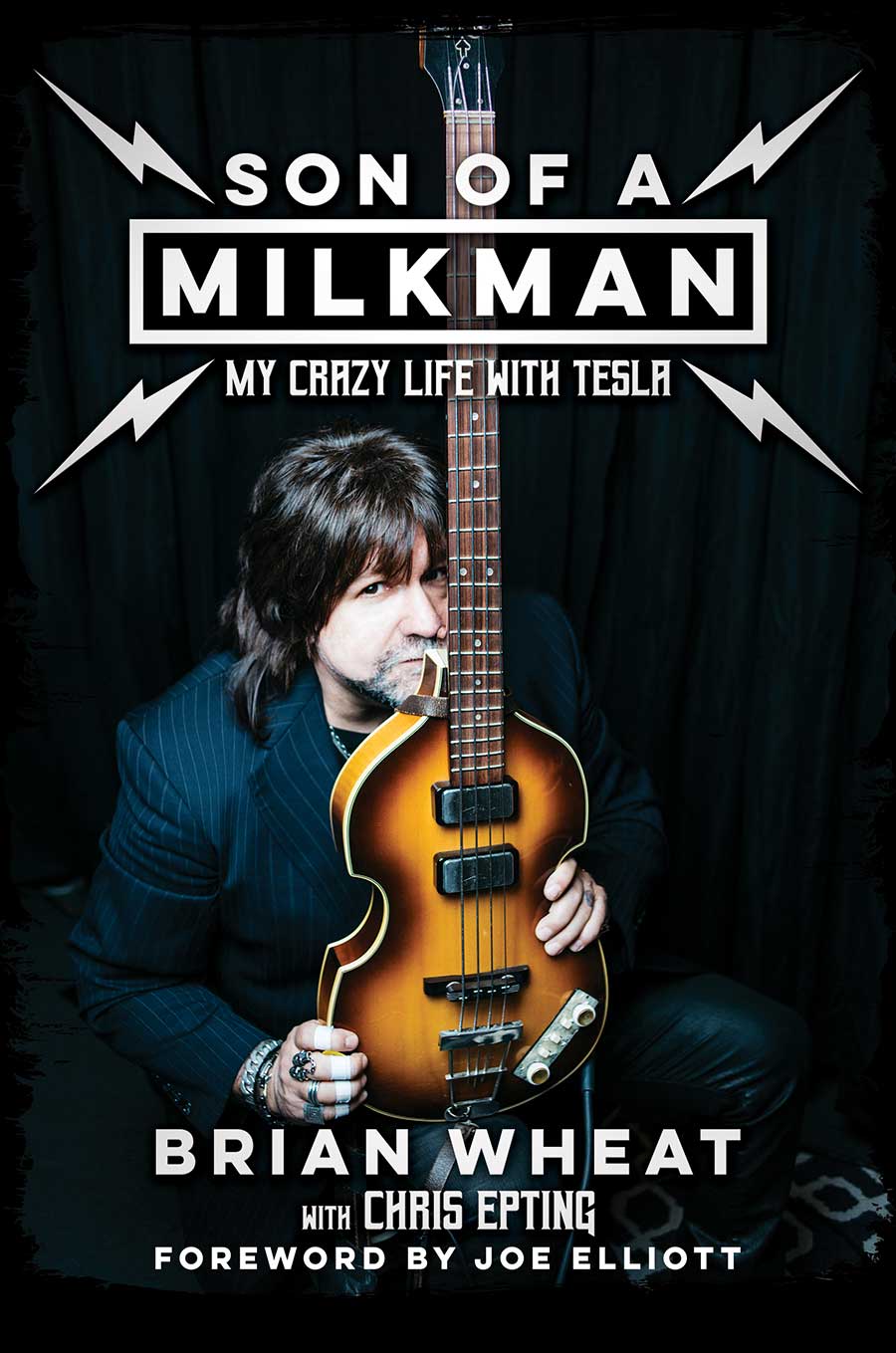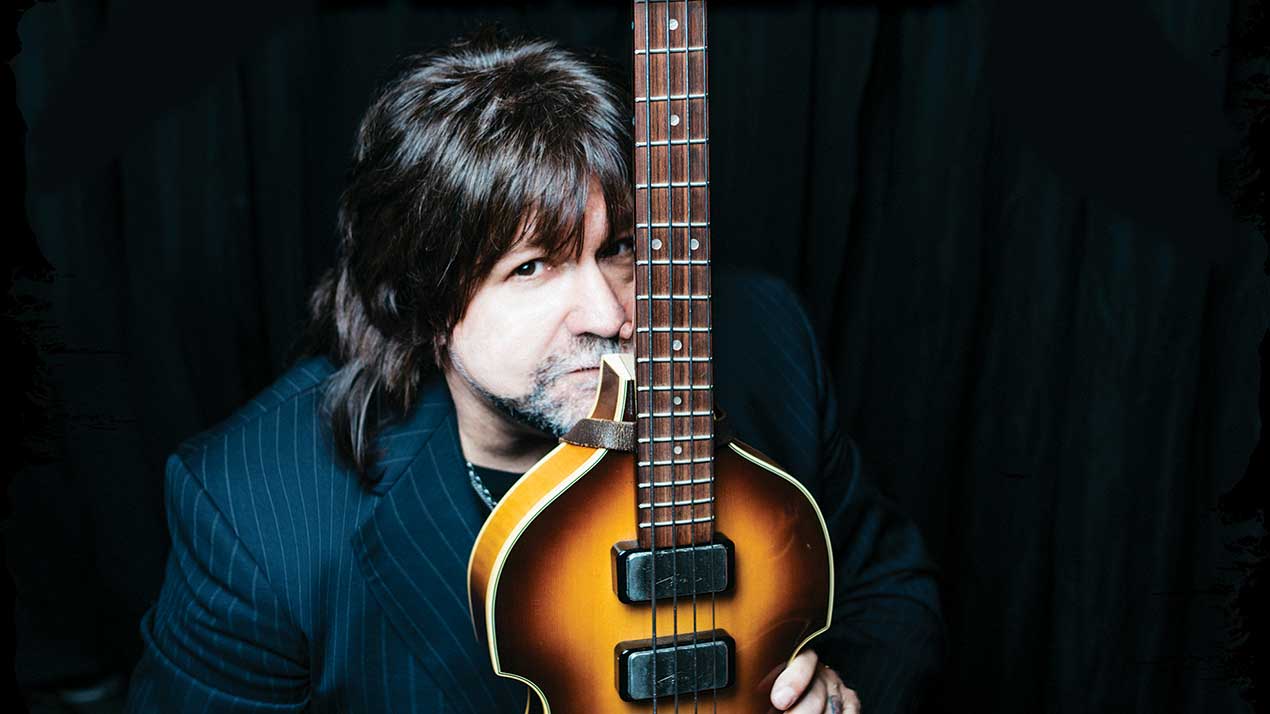With a forward by Joe Elliott and an afterword by photographer Ross Halfin, 'Son of a Milkman: My Crazy Life with Tesla' is a new memoir by Tesla bassist Brian Wheat. An honest an unflinching read, it tells the story of the platinum-selling blue collar rockers, and addresses Wheat's struggles with bulimia, weight issues, anxiety and depression.
In this edited excerpt, Tesla are on top of the world, with a $5 million deal from Geffen in the can and a new album – the follow-up to the platinum 'Psychotic Supper' - on the horizon. It didn't go to plan.

Bust a Nut was recorded at Fantasy Studios in Berkeley, across the bay from San Francisco. It is the studio where Creedence Clearwater Revival recorded all their classic albums.
I made a conscious decision to not repeat the mistakes of the last album, the first of which was going to the East Coast when we could easily do it on the West Coast. We wanted to be close to home, and that’s why we chose Fantasy.
Looking back, it may have been a bad decision. Maybe it would have been better if we had been away where there wouldn’t have been so many distractions.It was what it was, but there were fun moments making that record.
Unfortunately, the album was a little disjointed. You can kind of tell that we were falling apart, unraveling. But there are a handful of songs on that album that still hold water today. I think the proof of the pudding is in the live set, things I still want to showcase to audiences.
For me, they are Try So Hard, Wonderful World, and Mama’s Fool. There was some stuff that wasn’t so good, like The Gate/Invited. I look at that today and think, God, what was I thinking? I thought I was writing this Band On The Run song, but it wasn’t.
Need Your Lovin' was a single, but I didn’t care for that song; I thought it was trite. I liked Earthmover. It had a twisted, fucked-up bridge that was really cool. Solution, I didn’t like that. She Want She Want I like now. That song is like Be A Man for me. I didn’t like it then, but I like it now.
Action Talks goes in the same category as Rock Me. Cry was cool; it was one of my songs, but it wasn’t an A song, it was a B song. A Lot To Lose, great song. That was me, Frank, and Jeff. That’s a classic. Rubberband, which I like, is another one I wrote, but it never really lived up to its potential.
The sessions were mostly good. Jeff [Keith, singer] was either into it or out of it, depending on what he was doing. I remember him coming in and sleeping all day. It was a really hard record to get done because we were coming from different directions. Terry Thomas [producer] should have gotten a medal for that album. He put it all together and got us all in one place to finish it. Terry would tell Jeff, “Let’s start at one o’clock,” and Jeff would show up at nine o’clock at night.
It was the first record where I split after I had done my parts. Troy [Luccketta, drums] was sober, so he was like, “You guys are out of your minds.” I was doing my usual bottle of scotch a day. Frank [Hannon, guitar] was just being the usual Frank. He always dabbled in alcohol, blow, or weed.
Peter and Cliff’s [Peter Mensch and Cliff Burnstein from Q Prime Management] attitude to me was, “You deal with it.” They’d had it. Cliff didn’t like a lot of the songs we’d submitted, and we were like, “Fuck it, we’re making this record, and there’s nothing you can do about it.”

At this time, I was getting frustrated by everything. We thought we had created the next Back in Black and were convinced that we were poised for even greater success. Unfortunately, it was a couple of years too late, because the grunge thing had kicked in.
We didn’t realise that. In our world, we were still at the top of our game. We were used to being the champions of AOR radio for almost ten years, and all of a sudden with the album we think is our massive breakthrough record, the radio stations aren’t down with us because we’re not grunge, we’re a “hair band” or “butt rock.”
Bust A Nut did OK. We got a gold record out of it. We went on tour to promote Bust A Nut and, initially, it looked like it was going to be a big record. We had loads of airplay on the first single, Mama’s Fool, but grunge, again, had just kicked in, and we weren’t aware of it. We were kind of oblivious to what was going on around us because we were only really concerned with what we were doing.
We weren’t interested in what other people were doing or what the scene was. Looking back, we had unrealistic expectations for that album. We knew what we needed to do, we just didn’t do it. We were too indulgent and not critical enough. Our standards should have been higher. We expected to be back headlining arenas, but it was mostly three- to five-thousand-seat theatres.
Some fans say it is their favourite album, and it has some strong songs, but it’s inconsistent. Grunge didn’t kill Tesla, but the perception was that we had four platinum records and then Bust A Nut "only" went gold.
The word was Tesla was on the way out. That was not even close to the truth. We could have easily carried on making gold records. It was the internal shit that did it.

Following the release of 'Bust a Nut', guitarist Tommy Skeoch left Tesla to go into rehab. He rejoined after completing the programme, only to depart again shortly after. The band went on hiatus, and Wheat formed Soulmotor, whose debut album 'In Super Hi-Fi Sound!' was released in 1998. Tesla reformed in 2000.
